Happy holidays!
December is a month full of celebrations for people all around the world. During this winter month, many will gather with their families, exchange gifts, and honor special moments as the seasons change and the year comes to an end.
What holidays do you celebrate in your country this month? Learn how to say your favorite holidays in Chinese (plus sample sentences with Pinyin!) here.
All descriptions of holidays are from Nationaltoday.com.
1. Hanukkah/Chanukah 哈努卡节 (Hānǔkǎjié)
Alternate name: 光明节 Guāngmíngjié
我们在哈努卡节点亮烛台。(Wǒmen zài hā nǔ kǎ jié diǎnliàng zhútái) On Hanukkah, we light the menorah.
November 28 – December 6
“The Jewish celebration called Hanukkah (or Chanukah) lasts eight days and commemorates the second-century BC rededication of the Second Temple in Jerusalem. Often called the Festival of Lights, the holiday is celebrated with the lighting of the menorah, traditional foods, games, and gifts.”

2. St Nicholas Day/Feast of St Nicholas 圣尼古拉节 Shèng ní gǔ lā jié
December 6
圣尼古拉节快乐是十二月六日。 (Shèng ní gǔ lā jié kuàilè shì shí’èr yuè liù rì.) St Nicholas Day is on December 6.
“St. Nicholas was a bishop in 4th century Greece. He was known for selling off his own items and then giving the money to the poor. He would commonly leave coins in people’s shoes and dedicated his entire life to serving people who were sick and suffering. This is how he gained his saint status, and is what inspired St. Nicholas Day (also commonly known as Feast Day or the Feast of St. Nicholas).
In Italy, this day was celebrated with feasts, gift-giving, and festivals. In other European countries like Germany and the Netherlands, children would leave their shoes or special St. Nicholas boot in front of the fireplace or front door at night and find presents in them in the morning.”
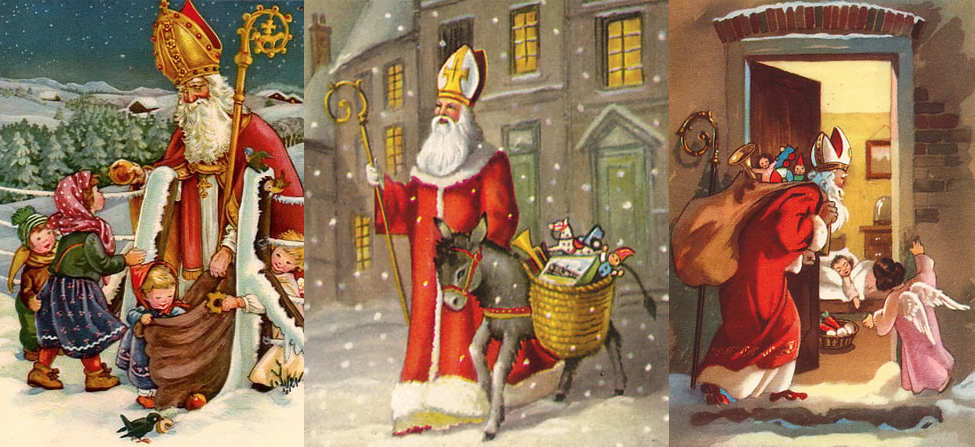
3. Bodhi Day 菩提日 Pútí rì
December 8
菩提日快乐!Pútí rì kuàilè! Happy Bodhi Day!
“Bodhi Day marks the moment that took place 2,500 years ago when Siddhartha Gautama achieved enlightenment and became the Buddha or ‘awakened one’.
Bodhi Day is celebrated in Japan, and by many Buddhists, every year. It falls on the eighth day of the 12th month of the lunisolar calendar.”
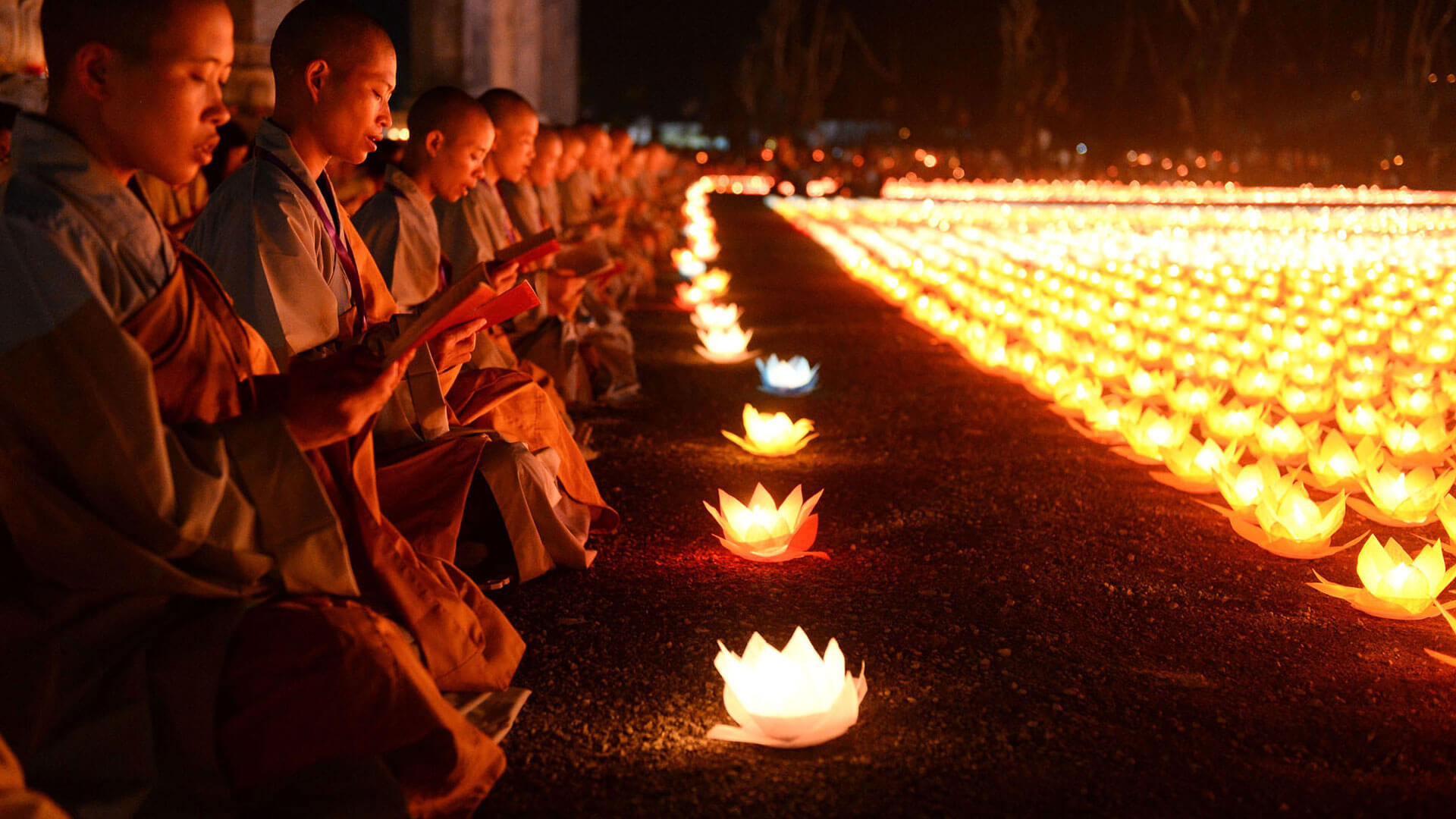
4. Las Posadas 拉斯波萨达斯 (Lā sībō sà dá sī)
December 16-24
你的国家怎么庆祝拉斯波萨达斯?(Nǐ de guójiā zěnme qìngzhù lā sībō sà dá sī?) How does your country celebrate Las Posadas?
“Las Posadas is a nine-day celebration before Christmas, beginning with a procession with candles, songs, and sometimes even people playing the parts of Mary and Joseph who lead the parade. Every night of Las Posadas is celebrated with gifts, piñatas, songs, parties, tamales, and prayer.”
The holiday is celebrated across Mexico and Latin America.
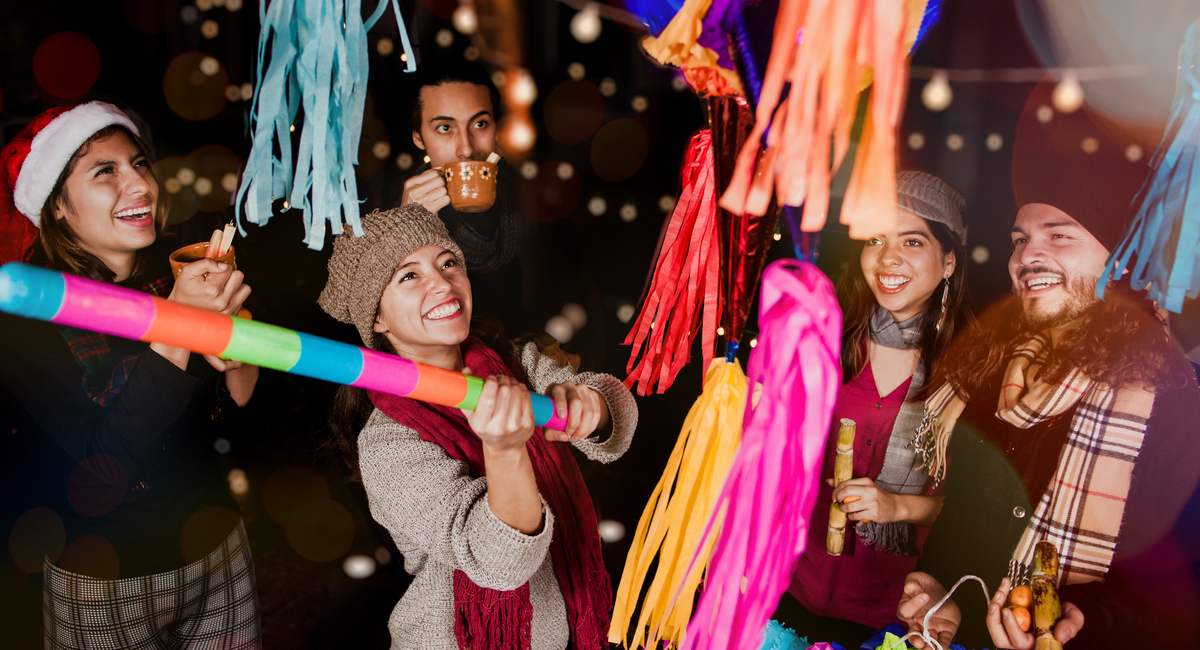
5. Yule 耶鲁节 Yélǔ jié
An alternate name is 尤尔节 Yóu ěr jié
December 21
耶鲁节快乐!Yélǔ jié kuàilè! Happy Yule!
“Yule celebrations used to be tied with different pagan traditions, bordering on mythology and culture. Popular notions include the myth of the goddess giving birth to the Sun god. There is also the celebration of the surrender of power from the Holly King unto the Oak King.
With the introduction of Christianity, the Yule celebration has been linked with Christmas traditions too. It’s thought that December 25 was chosen to celebrate the birth of Christ because it is the renewal period. Yule and Christmas both share certain similarities, and they often overlap as well.”
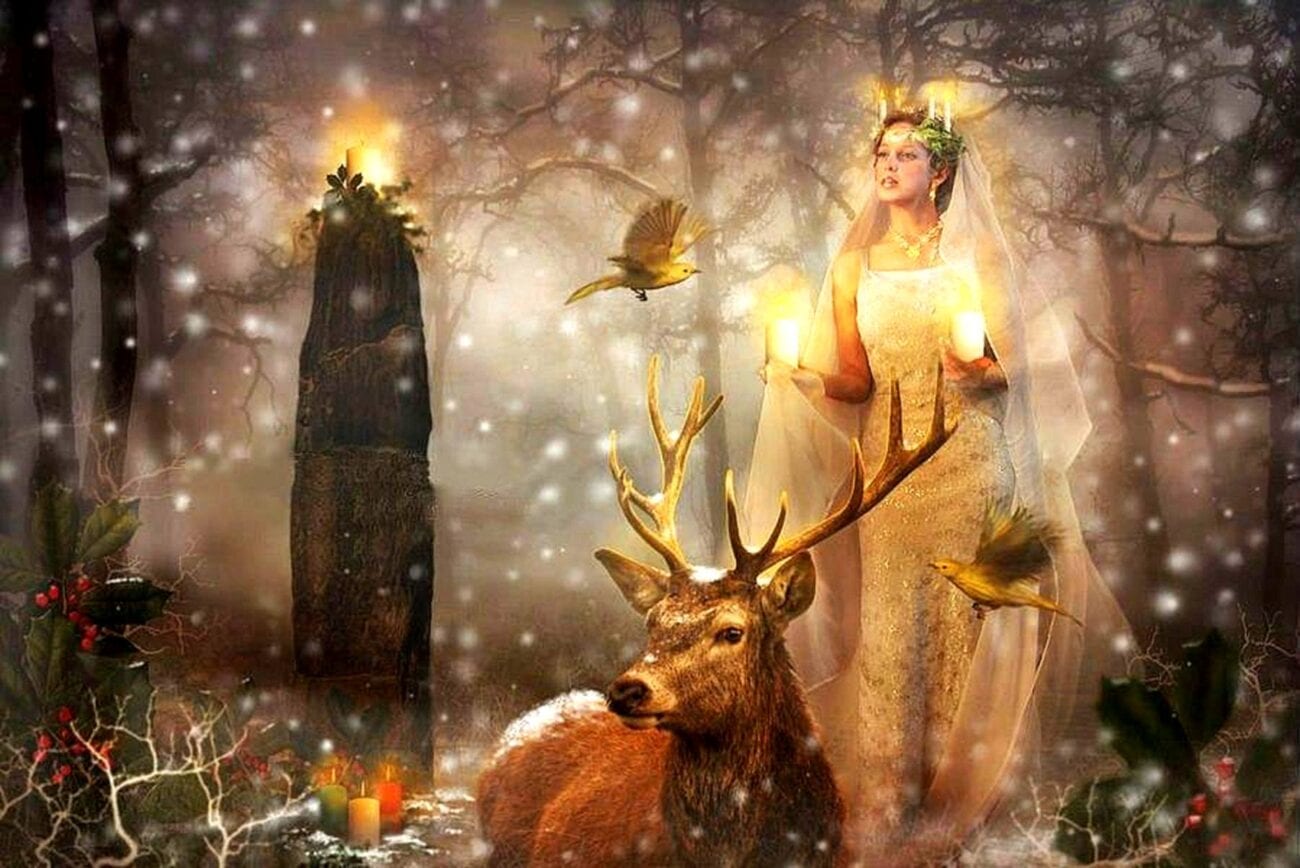
6. Winter Solstice 冬至 Dōngzhì
December 21
从汉代起, 有冬至次日开始数九的风俗。(Cóng hàndài qǐ, yǒu dōngzhì cì rì kāishǐ shǔ jiǔ de fēngsú) From the time of the Han Dynasty, there is a tradition of counting days after the winter solstice.
“The Winter Solstice marks the day with the shortest period of daylight and the longest night of the year (in the Northern Hemisphere), all thanks to the tilt of the earth. In many cultures, the day is a day of feasting and celebration.
Modern druids gather at Stonehenge in England to mark the festival each year. If you stand in just the right place inside the Stonehenge monument on the day, facing east through the entrance towards a stone outside the circle called the Heel Stone, you’ll see the sun rise above the heel stone.”
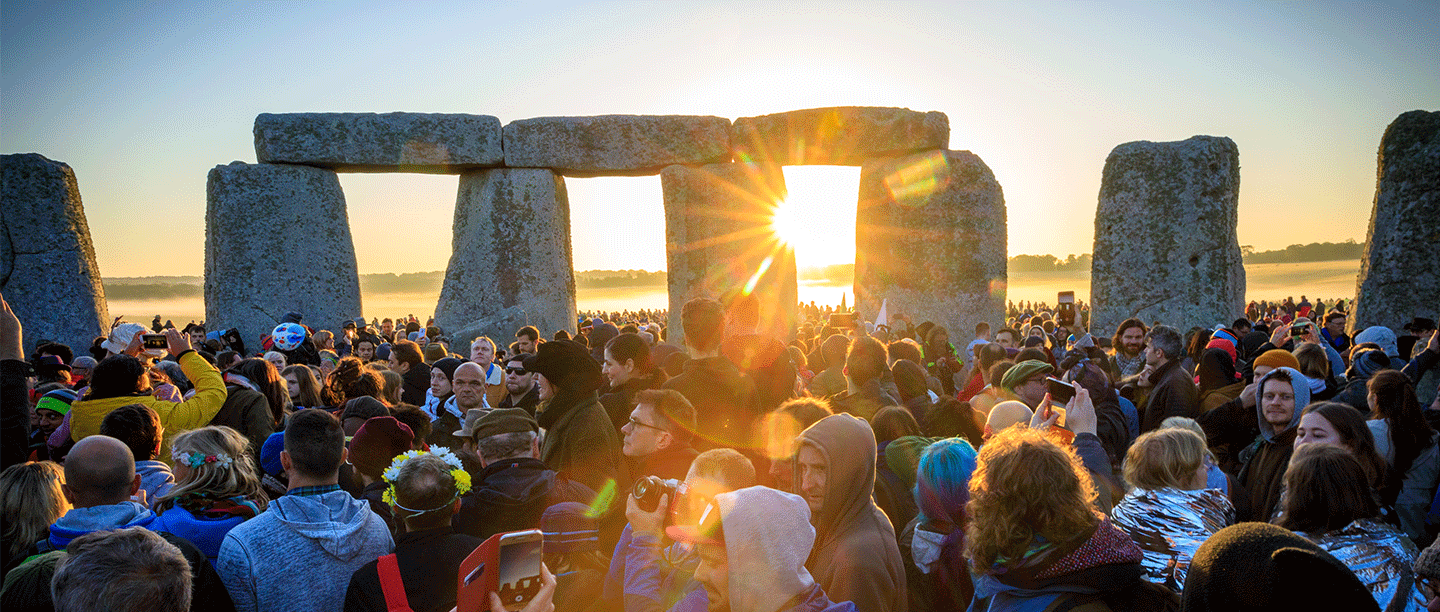
7. Christmas Eve 圣诞前夕 Shèngdànqiánxī
December 24
今年我姐姐会在圣诞前夕回来。(Jīnnián wǒ jiějiě huì zài shèngdàn qiánxī huílái.) This year, my sister will be back on Christmas Eve.
Christmas Eve is the day before Christmas. On this day, people rush to complete last-minute holiday shopping and decorating, prepare gifts to give the following day, meet with family, or attend a church service to commemorate the religious significance of the season.
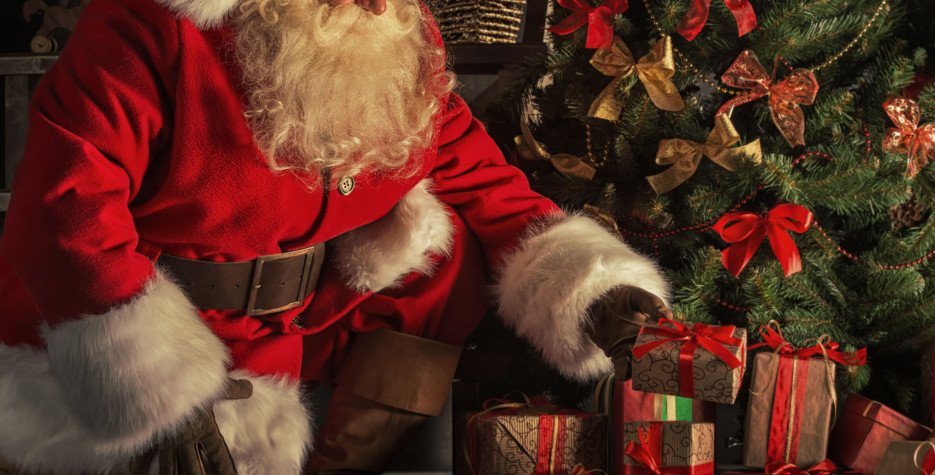
8. Christmas 圣诞节 Shèngdànjié
December 25
祝你圣诞节快乐!(Zhù nǐ shèngdàn jié kuàilè) Merry Christmas!
“Traditionally, Christians claim Christmas as the day on which Jesus Christ, the Son of God, was born. But even for non-Christians, it is a day for spending time with family, observing an important Christian holiday, partaking in lighthearted traditions, or just spreading some holiday cheer!
Houses are decked out in colorful lights and beautifully decorated pine trees, the delicious smell of hot cocoa and spices fill the air — there’s nothing that quite tops the beautiful Christmas spirit.”
Here are some other Christmas words you should know:
- 圣诞老人 Shèngdàn Lǎorén–Santa Claus
- 圣诞树 Shèngdànshù– Christmas tree
- 节礼日 Jiélǐrì–Boxing Day (the day after Christmas)
- 降临节 Jiànglínjié–Advent (the four weeks before Christmas)
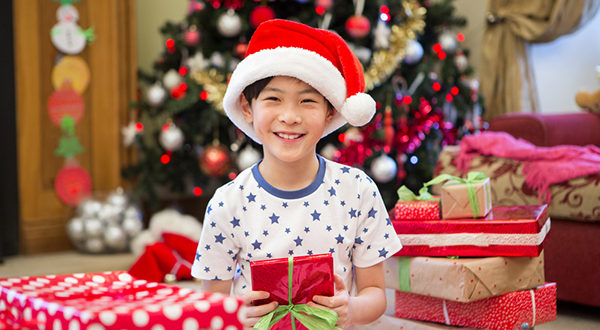
9. Kwanzaa 宽扎节 Kuān zhā jié
我们宽扎节时候去奶奶家团结吃饭。(Wǒmen kuān zhā jié qù nǎinai jiā tuánjié chīfàn) We went to grandma’s house on Kwanzaa to eat together.
December 26- January 1
“Kwanzaa is an African American and pan-African seven-day cultural holiday that celebrates family and community. During the holiday, families celebrate with feasts, music, and dance, and end the holiday with a day dedicated to reflection and recommitment to the seven principles.
The name Kwanzaa comes from the phrase “matunda ya kwanza” meaning “first fruits” in Swahili. Swahili is considered a pan-African language, and also happens to be the most widely spoken language in Africa. Basing the language of the holiday in Swahili represents unity throughout the African and Black communities.”
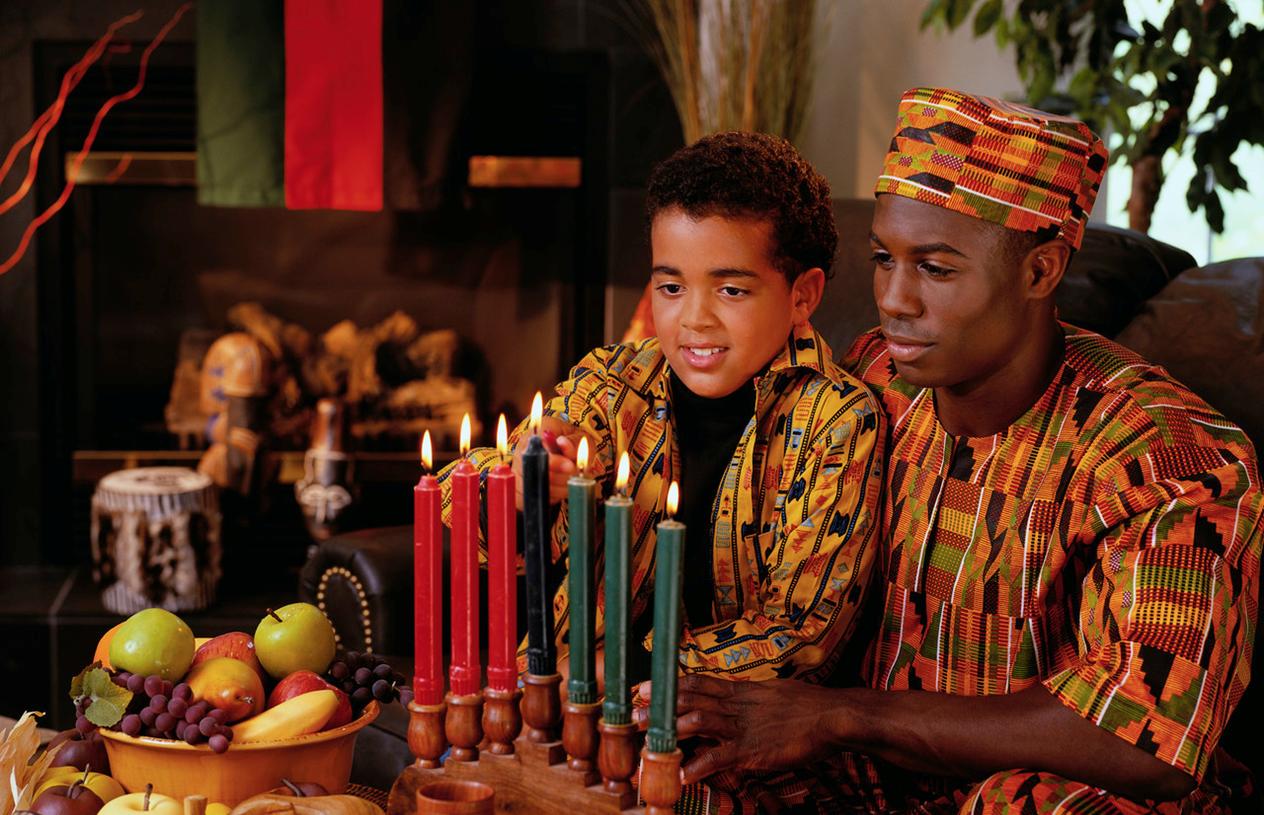
10. New Year’s Eve 新年前夕 xīnniánqiánxī
新年快乐!(Xīnnián kuàilè) Happy New Year!
December 31
The long year of 2021 is over. What will come next in 2022? This holiday is a time to celebrate the year gone by with parties and champagne, and look ahead to the new year with hope and new resolutions. See you in 2022!
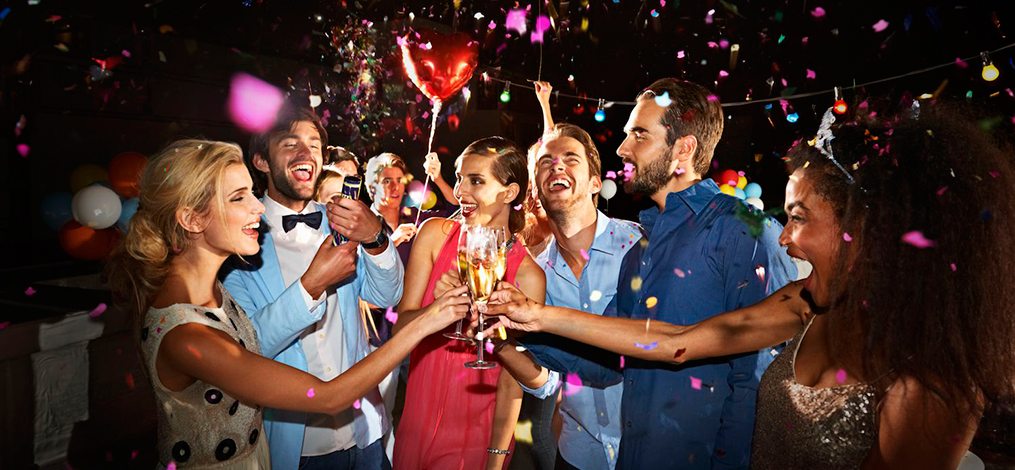
Lunar New Year, celebrated in China and across Asia, is coming up in January and February. Stay tuned for a new blog post about this very special holiday season!
What are the popular holidays in your country? Tell us in the comments!
Read More
20 Chinese Words for Time: How to Say Day, Month, and Year in Chinese
How do you say your major in Chinese?
10 Popular Chinese Idioms You Must Know!
5 Most Interesting Chinese Characters: Part I
- 5 Chinese Universities Without Application Fee - April 19, 2025
- 9 Best Schools to Study Chinese in Beijing in 2025! - April 6, 2025
- How to Apply to the CSC Scholarship Step by Step - March 30, 2025